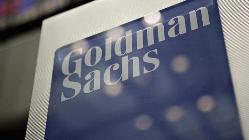
U.S. banks will probably wait to see if issuing Shariah-compliant bonds is worth the trouble after it took Goldman Sachs Group Inc. three years to sell its debut sukuk.
Islamic finance in the U.S. is still underdeveloped, and misconceptions associated with it taint the industry, according to King & Spalding LLP, an adviser on Shariah transactions in the country for 35 years. HSBC Holdings Plc, the biggest underwriter of sukuk this year after Malaysia’s CIMB Group Holdings Bhd., says the need for tangible assets to structure deals, and the lack of legislation to address taxation issues, makes selling Islamic bonds a challenge.
“It’s highly likely that Goldman will be the sole player in the Islamic finance market in any meaningful way for the near term,” George Thomas Conboy, chairman of Rochester, New York-based Brighton Securities Corp., a financial services company, said by phone from Istanbul on Sept. 18. “There aren’t as many players willing to take risks in that area until Goldman blazes a trail and it’s clear that Islamic finance can be properly structured and profitable.”
Goldman Sachs, the fifth-biggest (GS:US) bank in the U.S., sold its debut sukuk last week, three years after its first foray into Islamic capital markets ended with controversy over the debt’s structure. It’s the fourth U.S.-based issuer to sell the securities. Borrowers raised $2 trillion from all bond sales in America last year, more than 46 times the amount sold in the Shariah market and more than the value of Islamic financial assets globally.
Negative Perception
Hong Kong, the U.K., South Africa and Sharjah, one of seven sheikhdoms in the United Arab Emirates, are among borrowers that have sold Islamic bonds for the first time this year. New York-based Goldman Sachs’s five-year notes yielded 21 basis points more than similar maturity non-Shariah compliant debt it issued in January at 3:21 p.m. in Dubai. The bank attracted orders for three times the $500 million it sold.
“Islamic finance’s level of awareness and depth of knowhow in general in the U.S. is at best at its infancy, with negative connotations stemming misconceptions,” Rizwan Kanji, a Dubai-based partner at King & Spalding, said by telephone from Dubai Sept. 18.
Islam is the most negatively perceived religion in the U.S., followed by atheism, according to a study by the Washington-based Pew Research Center published in July. About 1.9 million Muslims live in the country, the seventh-biggest religious group among about 319 million people, according to CIA World Factbook data.
Risk Premium
While Goldman Sachs’s sukuk won’t “create a market of new issuers in the U.S., frequent conventional issuers will start to see sukuk as a new avenue for tighter pricing or diversification of their investor base,” Kanji said. Citigroup Inc., Bank of America Corp. and JPMorgan Chase & Co. were among the biggest issuers of debt last year, according to data compiled by Bloomberg.
Rob Julavits, a spokesman for Citigroup, Zia Ahmed from Bank of America and Jessica Francisco from JPMorgan declined to comment last week on whether the lenders will be pursuing Islamic financing deals.
Stamp Duties
Borrowers using sukuk need assets to underlie the debt and there’s an additional cost of hiring Shariah scholars or boards to structure the securities.
“If you’re a U.S. corporate that doesn’t have tangible assets it can utilize, it’s more challenging to structure” a sukuk, Mohammed Dawood, HSBC’s Dubai-based global head of sukuk financing, said in a Sept. 11 interview. “The U.S. hasn’t passed sukuk-specific legislation, unlike Hong Kong and the U.K., which have passed legislation to address tax and legal impediments.”
To adhere to Islam’s ban on interest, the bonds pay a return on assets and may attract double charges on stamp duties because of the sale and purchase of goods to back the debt. Profits or capital gains incur taxes, whereas interest is tax deductible.
Islamic finance is too new for U.S.-based issuers, and the structures and impediments are too complicated, Conboy said.
“Anything with Shariah attached to it carries a small risk premium,” he said.
*This article was originally published on Bloomberg Businessweek on 22 September 2014. Read the original article here.
